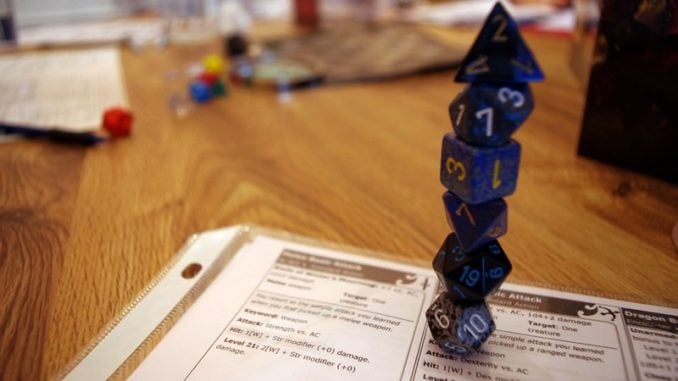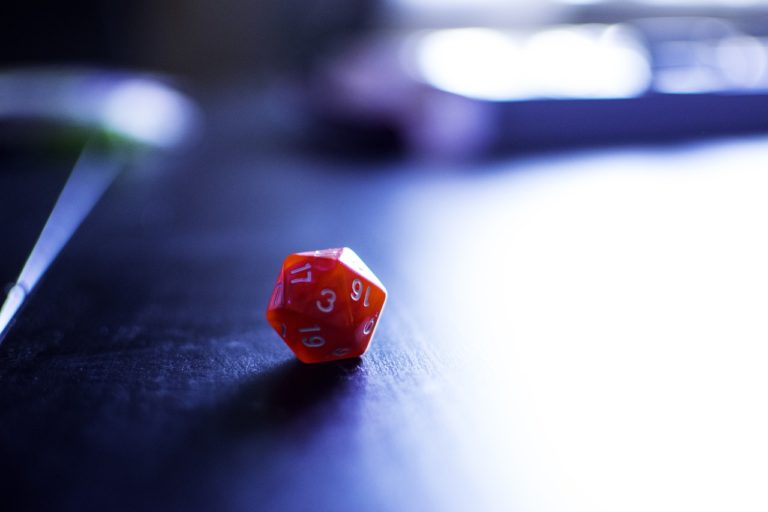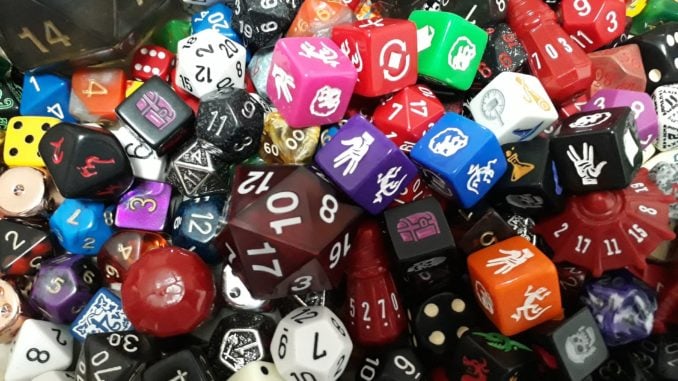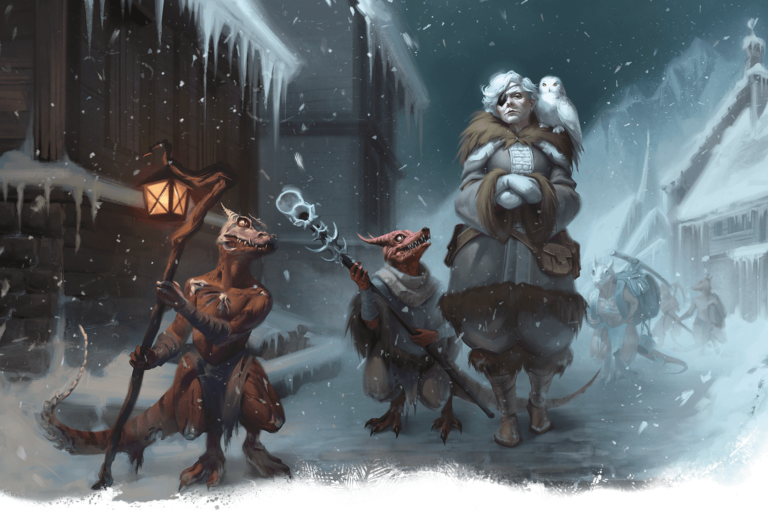5E Starting Gold By Level | Starting Gold 5E Guide
Unsure of how to calculate your character’s starting wealth in 5E? Then this is the Starting Gold 5E Guide for you! These rules apply to every character, from forge clerics to barbarians. Below, we will walk you through your options for determining your starting wealth and equipment in the Fifth Edition of Dungeons and Dragons.
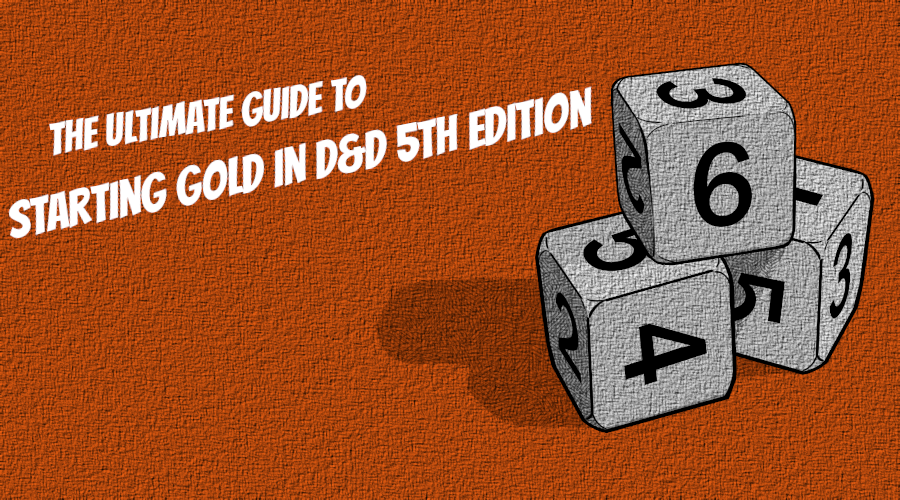
Table of Contents
Starting Gold 5E Options – Level 1 Characters
There are two options under the Player’s Handbook for determining your character’s initial wealth. The first option involves rolling dice to determine your starting gold, then purchasing equipment with those coins. The second option provides you with a list of equipment to choose from based on your combination of background and class.
Starting Gold
One option to determine your starting gold is to roll for a pool of gold and use that to purchase your initial equipment. Any money left over after these purchases is your starting gold. This option could work best if you are unsatisfied with the starting equipment that comes with your background.
The process is simple. You roll a number of d4 depending on your class. You will then multiply that roll by 10 to get your starting gold. Monks are the only exception to the rule. Due to the equipment rules of the class, they roll five d4 but do not multiply it.
Starting Wealth by Class Table
If you select the option to start with a pool of gold to purchase your initial equipment, the amount of cash you have to choose from depends on your class. See the table below to determine your dice roll.
| Class | Starting GP |
| Barbarian | 2d4 x 10gp |
| Bard | 5d4 x 10gp |
| Cleric | 5d4 x 10gp |
| Druid | 2d4 x 10gp |
| Fighter | 5d4 x 10gp |
| Monk | 5d4 gp |
| Paladin | 5d4 x 10gp |
| Ranger | 5d4 x 10gp |
| Rogue | 4d4 x 10gp |
| Sorcerer | 3d4 x 10gp |
| Warlock | 4d4 x 10gp |
| Wizard | 4d4 x 10gp |
How Much Starting Gold Does an Artificer Get?
There’s a notable omission on the above list – the Artificer class. At the time the above list was created by Wizards of the Coast, the Artificer had not yet been adopted in 5th Edition D&D. After the Artificer came about, Wizards of the Coast failed to make any mention of the starting gold cost for this class. We searched high and low for any kind of official statement without luck, so the best we can do is make as suggestion. If you aren’t interested in the starting equipment approach for the artificer, we suggest going with the same rolls for artificer as you would the wizard. After all, artificers have higher costs related to materials while also generally requiring armor.
Starting Equipment
Alternatively, you can select the list of starting equipment that comes with each class, and supplement it with the items that come with your selected background. For nearly every option, this list includes a pouch containing gold coins. The amount of coins can vary, with Nobles and Archaeologists starting with 25gp. The Haunted One background, on the other hand, starts with zero gold. However, that background comes with valuable equipment that offsets the lack of cold, hard cash. Other backgrounds – like the Clan Crafter or the Far Traveler – start with jewelry or gems in addition to their pouch of gold. Remember, you will also likely have access to toolkits through your background, including the Disguise Toolkit.
Starting Gold and Equipment by Background Table
If you choose to take the starting equipment option, your starting wealth is a fixed amount based on your background. Below is a helpful alphabetical chart that lists each background and the starting GP that comes with it.
| Background | Starting GP |
| Acolyte | 15gp |
| Anthropologist (ToA) | 10gp |
| Archaeologist (ToA) | 25gp |
| Charlatan (PHB) | 15gp |
| City Watch / Investigator (SCAG) | 10gp |
| Clan Crafter (SCAG) | 5gp gem and 10gp |
| Cloistered Scholar (SCAG) | 10gp |
| Courtier (SCAG) | 5gp |
| Criminal / Spy | 15gp |
| Entertainer (PHB) | 15gp |
| Faction Agent (SCAG) | 15gp |
| Far Traveler (SCAG) | 10gp jewelry and 5gp |
| Folk Hero | 10gp |
| Gladiator (PHB) | 15gp |
| Guild Artisan/Merchant (PHB) | 15gp |
| Haunted One (COS) | None |
| Hermit (PHB) | 5gp |
| Inheritor (SCAG) | 15gp |
| Knight (PHB) | 25gp |
| Knight of the Order (SCAG) | 10gp |
| Mercenary Veteran (SCAG) | 10gp |
| Noble | 25gp |
| Outlander (PHB) | 10gp |
| Pirate (PHB) | 10gp |
| Sage | 10gp |
| Sailor (PHB) | 10gp |
| Soldier | 10gp |
| Urban Bounty Hunter (SCAG) | 20gp |
| Urchin (PHB) | 10gp |
| Uthgardt Tribe Member (SCAG) | 10gp |
| Waterdhavian Noble (SCAG) | 20gp |
5E Starting Gold by Level – Levels 2+
The rules are different if you intend to begin the campaign with characters above level 1. While 3.5 provided a helpful chart that provided starting gold based on your character’s level, the 5th Edition of the Player’s Handbook does not. Thankfully, the Dungeon Master’s Guide has the official rules for providing starting gold and equipment for higher level characters. Keep in mind, the DMG makes clear this is at the DM’s discretion, so these rules are only a rough guide. You and your fellow nerds should do what works best for you. See below for guide provided by the DMG. These tables give you options for low magic campaigns, standard campaigns, and campaigns involving high magical use.
| Character Level | Low Magic Campaign | Standard Campaign | High Magic Campaign |
| 1st – 4th | Normal Starting Equipment & Gold | Normal Starting Gold & Equipment | Normal Starting Equipment & Gold |
| 5th – 10th | 500gp plus 1d10x 25gp, normal starting equipment | 500gp plus 1d10x25gp, normal starting equipment | 500gp plus 1d10x25gp, one uncommon magic item, normal starting equipment |
| 11th-16th | 5,000gp plus 1d10x250gp, one uncommon magic item, normal starting equipment | 500gp plus 1d10x250 gp, two uncommon magic items, normal starting equipment | 5,000gp plus1d10x250gp, three uncommon magic items, one rare item, normal starting equipment |
| 17th+ | 20,000gp plus 1d10x250gp, two uncommon magic items, normal starting equipment | 20,000gp plus 1d10x250gp, two uncommon magic items, one rare item, normal starting equipment | 20,000gp plus d10x250gp, three uncommon magic items, two rare items, one very rare item, normal starting equipment |
Which Starting Option is Best?
In researching our Starting Gold 5E Guide, we decided the answer really depends on your play style. If you are playing an advanced character from the start of your campaign, the rules from the Dungeon Master’s Handbook regarding starting gold for higher levels in 5E are fine. Alternatively, your DM might have their own system for this.
When it comes to the starting gold and equipment for a Level 1 character, you should do what makes the most sense for you. If you are short on time or just want to be true to the background of your character, selecting the equipment option might be for you. Should you prefer customization and don’t mind a little risk, rolling for your gold could be the best option.
If you are curious which method gets your character the most value, there are some factors to consider. For starters, the value of your gold and gear will vary when you roll for it. When you select the equipment route, your value is set. It should come as no surprise, then, that the best option really depends on the strength of the roll. While selecting your equipment is better if you roll a low number, a high roll will probably net you more starting gold than if you had chosen your equipment based on your background.
That said, the starting wealth accumulated with an average roll is typically less than the value of your equipment plus starting gold. Unless you are prepared to risk starting off with limited resources thanks to a bad roll, you might want to stick with the equipment that comes with your background. Below, we give our thoughts on which classes benefit from rolling and which are best taking the starting equipment. These are generalizations, so your experience may be different from ours.
See Also: Coup de Grace 5E Guide
Classes That Should Roll for Gold
There is only one class that makes a strong case for rolling for gold, and even then it depends on your selected background. However, a bard has a strong chance of starting with far more wealth with even an average dice roll compared to taking the starting equipment. The starting equipment based on the class is worth roughly 100gp; the average gold roll for a Bard is 125gp. With a perfect roll, you would start out with a hefty 200gp to equip your character and fill your pockets.
It is worth noting that even when you take the equipment that comes with a class, you are usually offered a choice. For example, the ranger has the option to select chain mail (50gp) or leather armor (10gp). If you are planning on opting for leather armor, you are leaving a lot of starting wealth on the table. It might make sense to roll for gold in that situation. This might be the case for rangers, rogues, or clerics.
Classes That Should Take the Equipment
For the most part, you will want to take the starting gear that comes with martial classes and backgrounds. These characters rely on heavy-duty weapons and armor that cost far more than what a bard or a sorcerer might carry. The paladin class is arguably the best example. While they get the most d4 rolls of any class for starting gold, the potential value of the equipment they could select dwarfs even a perfect roll. For that reason, we would not roll for barbarians, fighters, or paladins. The same is true for classes that like wizard or warlock who typically wind up with a strong selection of starting equipment.
Last but not least, we would never roll when playing a monk. Your best-case scenario with rolling for gold would be 20gp; it would be virtually impossible to begin with equipment worth less than that.

Understanding How gold works in D&D
Your average D&D campaign has a straightforward economy built on the use of coins. While gold coins are the baseline currency used to determine your starting equipment, there are actually a number of other coins that are common Dungeons and Dragons. Most of these coins, like coppers and silvers, are worth less than gold. Once you get past a certain level, the loot adventurers own will largely make these coins obsolete or unnecessary.
That said, there are also platinum coins that are worth ten times as much as gold. As you level up, the chances of earning platinum instead of copper, silver, or even gold goes up. You can see the following table for a better understanding of how these coins work.
| Coin | CP | SP | EP | GP | PP |
| Copper Piece (cp) | 1 | 1/10 | 1/50 | 1/100 | 1/1,000 |
| Silver Piece (sp) | 10 | 1 | 1/5 | 1/10 | 1/100 |
| Electrum Piece (ep) | 50 | 5 | 1 | 1/2 | 1/20 |
| Gold Piece (gp) | 100 | 10 | 2 | 1 | 1/10 |
| Platinum Piece (pp) | 1,000 | 100 | 20 | 10 | 1 |
How Much Gold is Considered Rich in DND?
The Players Handbook provides us with some guidance on what qualifies as “rich” when it comes to accumulating gold in DND. Under the rules, a modest lifestyle – which is better than most of the NPCs you will encounter live – costs 1 gold per day. A wealthy lifestyle increases to 4 gold per day, which means your character would need at least 1460 gold per year to life in the lap of luxury. Based on this, most adventurers would be considered rich in DND. That makes sense when you are risking your life battling dragons and such!
Wrapping Up Our Starting Gold 5E Guide
Putting it all together, there are two important considerations: what works best for you and what your DM will allow. If you DM has strict rules on determining starting gold, there is much reason sweating your decision. When you do have options, you should make the choice that fits your character and your playstyle. If part of the fun is taking chances or carefully selecting your gear with your budget, then rolling for your gold is for you. If you are in a time crunch and just want to get started, we suggest picking from the list and taking the starting gold that comes with your background. Either way, we hope you have fun!
Did you find this Starting Gold 5e Guide helpful? If so, check out our other work like our complete guide to Ritual Spells in 5E.

